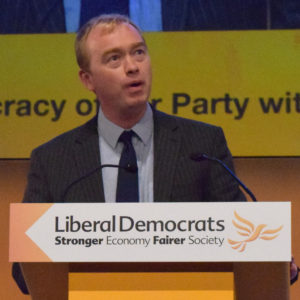British Members of Parliament Plan To Block Brexit
Some British members of parliament expressed their intent to block the Brexit in a statement to the BBC on November 11. This declaration follows a ruling by the British High Court on November 3 that the Parliament must approve Brexit plans before ratification. Previously, the Brexit would have been initiated through Prime Minister Theresa May’s executive power. The decision by the High Court may prevent the implementation of Article 50 of the Lisbon Treaty, which outlines the procedures for one of the EU’s 28 member states to leave the Union.

Tim Farron, leader of the Liberal Democrats, promised on November 11 to not vote against Article 50 “only if there is a [second] referendum” on the deal. However, it is important to note that Farron’s party only possesses 8 out of 650 seats in the House of Commons and that the majority Conservative party is likely to vote for the Brexit. Furthermore, it is now apparent that the Labour Party--Britain’s second-largest political presence--is divided on the vote and may not have enough support to vote against Brexit. In short, the current opposition by the Liberal Democrats and some members of the Labour Party is expected to slow, but not stop the United Kingdom’s departure from the EU.
Additionally, many politicians are arguing that another referendum or a negative vote may not achieve anything besides decreasing the amount of trust British people have in their government. Former Labour leader Ed Miliband argued on November 13 that voting against Article 50 would not halt the process, but rather cause a hard Brexit, or a proceeding in which Great Britain receives unfavorable trade and travel laws after leaving, as opposed to a soft Brexit, in which the United Kingdom continues to enjoy relative free trade and migration with members of the EU.
With the date of the Parliamentary vote still unannounced, there is plenty of time for Members of Parliament to decide whether resisting Brexit is worth it.
